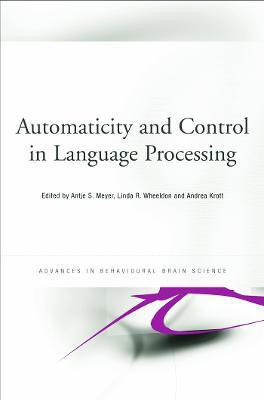Automaticity and Control in Language Processing(English, Paperback, unknown)
Quick Overview
Product Price Comparison
The use of language is a fundamental component of much of our day-to-day life. Language often co-occurs with other activities with which it must be coordinated. This raises the question of whether the cognitive processes involved in planning spoken utterances and in understanding them are autonomous or whether they are affected by, and perhaps affect, non-linguistic cognitive processes, with which they might share processing resources. This question is the central concern of Automaticity and Control in Language Processing. The chapters address key issues concerning the relationship between linguistic and non-linguistic processes, including: How can the degree of automaticity of a component be defined? Which linguistic processes are truly automatic, and which require processing capacity? Through which mechanisms can control processes affect linguistic performance? How might these mechanisms be represented in the brain? How do limitations in working memory and executive control capacity affect linguistic performance and language re-learning in persons with brain damage? This important collection from leading international researchers will be of great interest to researchers and students in the area.


